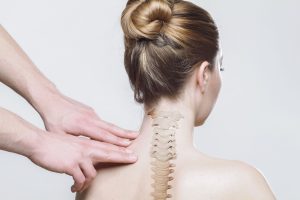New research detailed in Nature Medicine indicates that spinal cord stimulation (SCS) is making astounding leaps forward in promoting recovery of stroke victims’ motor function in their limbs and hands. The first two individuals treated with the new implants at the center of a recent clinical trial experienced a respective 40% and 108% increase in their grip force, with a notable change seen in the older and more severely impaired patients of the two. The tangible takeaways affecting day-to-day life included one of the trial subjects being able to open a lock as well as eat a meal with a knife and fork unassisted.
“By stimulating these sensory nerves, we can amplify the activity of muscles that have been weakened by stroke,” said Douglas Weber, co-senior author and professor of mechanical engineering at Carnegie Mellon University. “Importantly, the patient retains full control of their movements: the stimulation is assistive and strengthens muscle activation only when patients are trying to move.” Two lead implants are placed in the neck to promote excitation of arm and hand motoneurons, an approach that is based on preexisting knowledge of arm and hand sensory nerves signaling the spinal cord motor neurons that control muscle function. In the trial, researchers removed the leads after 29 days, and not only were no adverse events reported, but the two participants in fact continued to experience some of the associated improvements after the removal.
While the ongoing study is still being conducted without the benefit of a control arm, the promising early data is enough for the research team behind the implant technology to press forward with new enrollments. Reach Neuro, a startup originating out of CMU and the University of Pittsburgh, is taking the reins on commercialization. Efforts to bring the tech to market could be overshadowed if omnipresent competitors such as Medtronic, Boston Scientific, and Abbott, among others, leverage their existing technologies to carve out their own stroke recovery solutions.























